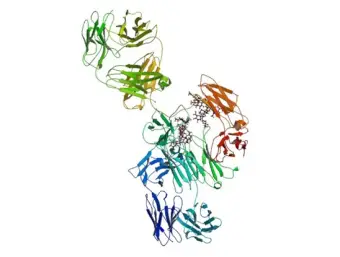PEG 300 API Manufacturers & Suppliers
Find, compare & contact
Filters
Custom request?
Type
Production region
Qualifications
Country of origin
Distributor
Produced in:
Established in: 1994
MOQ: -
Employees: 50+

26+ years of distribution expertise with regulatory excellence

16 worldwide locations supplying high quality ingredients

All our manufacturer partners are cGMP complaint
+ 0
All certificates
Producer
Produced in:
Established in: 2019
MOQ: 1 kg
Employees: 10+

Focused on pharmaceutical industry

Reasonable price for the customers

Full service from R&D stage to commercial stage
+ 0
All certificates
Distributor
Produced in:
Established in: 1886
MOQ: 20 l
Employees: 275+

Raw materials, CMO and OTC products

Two GMP certified locations

Customisable (small-sized) packages
+ 0
All certificates
Producer
+ 0
All certificates
How does it work?
You can register for free as long as you are registering on behalf of a legal company related to the pharmaceutical industry
Search in the search bar the product that you’re looking for. We’ll show you an overview of all available suppliers. Use the filters to select the relevant suppliers only
Have you found interesting suppliers? Then it’s time to contact them. Use the send inquiry button and send them a message. You can send for each product, 3 inquiries per week
Suppliers get notified by Pharmaoffer that they’ve received a new inquiry. They will come back to you with their questions, certificates, and offer in the chat on Pharmaoffer. We will send you an email in case of any news
Does the supplier meet your quality and commercial requirements? Then you can place the order. Just follow the steps of our order module
Looking for PEG 300 API 25322-68-3?
- Description:
- Here you will find a list of producers, manufacturers and distributors of PEG 300. You can filter on certificates such as GMP, FDA, CEP, Written Confirmation and more. Send inquiries for free and get in direct contact with the supplier of your choice.
- API | Excipient name:
- PEG 300
- Synonyms:
- Polyethylene glycol 300 , PEG 300 , Macrogol 300
- Cas Number:
- 25322-68-3
- DrugBank number:
- DB11161
- Unique Ingredient Identifier:
- 5655G9Y8AQ
About Macrogol 300
Here, you can find what Polyethylene glycol 300 is used for, in short. Polyethylene glycol 300 (PEG 300) is a water-miscible polyether with an average molecular weight of 300 g/mol. It is a clear viscous liquid at room temperature with non-volatile, stable properties Polyethylene glycols are widely used in biochemistry, structural biology, and medicine in addition to pharmaceutical and chemical industries. They serve as solubilizers, excipients, lubricants, and chemical reagents.
Low molecular weight glycols are observed to exhibit antibacterial properties as well. PEG 300 is found in eye drops as a lubricant to temporarily relieve redness, burning and irritation of the eyes.
Ask the supplier for a certificate of analysis to find out more about the quality of Polyethylene glycol 300.
PEG 300 is a type of Laxatives
Laxatives are a subcategory of pharmaceutical active pharmaceutical ingredients (APIs) that are commonly used to promote bowel movements and alleviate constipation. These medications are designed to stimulate the digestive system, facilitating the passage of stool and providing relief to individuals experiencing irregular or infrequent bowel movements.
Laxatives work through various mechanisms, including increasing intestinal motility, softening stool consistency, or promoting water retention in the intestines. They are available in different forms, such as tablets, capsules, powders, or liquids, catering to diverse patient preferences and requirements.
There are several types of laxatives, each with its unique mode of action. Bulk-forming laxatives contain fiber or other indigestible substances that absorb water, adding bulk to the stool and promoting regular bowel movements. Stimulant laxatives, on the other hand, stimulate the intestinal muscles, accelerating the passage of stool through the intestines. Osmotic laxatives draw water into the intestines, softening the stool and facilitating its movement. Additionally, stool softeners and lubricant laxatives can help ease bowel movements by making the stool easier to pass.
Laxatives are commonly used for short-term relief from constipation or to prepare for certain medical procedures or surgeries. However, their long-term use should be done under the guidance of healthcare professionals to prevent dependency or potential adverse effects.
In conclusion, laxatives are a vital subcategory of pharmaceutical APIs that aid in managing constipation and improving bowel regularity. They are available in various formulations and function through different mechanisms to provide effective relief. However, it is crucial to use laxatives responsibly and seek professional advice when necessary.
PEG 300 (Laxatives), classified under Gastrointestinal Agents
Gastrointestinal Agents belong to the pharmaceutical API category that focuses on treating disorders and ailments related to the digestive system. These agents play a crucial role in addressing various gastrointestinal conditions, such as acid reflux, ulcers, irritable bowel syndrome (IBS), and inflammatory bowel disease (IBD).
One of the key types of gastrointestinal agents is proton pump inhibitors (PPIs), which work by reducing the production of stomach acid. PPIs help in treating conditions like gastroesophageal reflux disease (GERD) and peptic ulcers. Another essential class of agents is antacids, which neutralize excessive stomach acid, providing relief from heartburn and indigestion.
Gastrointestinal agents also include antispasmodics that alleviate abdominal cramps and spasms associated with conditions like IBS. These drugs work by relaxing the smooth muscles of the digestive tract. Additionally, there are drugs categorized as laxatives that aid in relieving constipation by promoting bowel movements.
Moreover, certain gastrointestinal agents act as antiemetics, effectively reducing nausea and vomiting. These drugs are particularly useful for patients undergoing chemotherapy or experiencing motion sickness.
Pharmaceutical companies develop and manufacture a wide range of gastrointestinal agents in various forms, including tablets, capsules, suspensions, and injections. These agents are typically formulated using active pharmaceutical ingredients (APIs) and other excipients to ensure their efficacy and safety.
In conclusion, gastrointestinal agents form a vital category of pharmaceutical APIs, providing relief from digestive disorders and improving overall gastrointestinal health. The availability of diverse agents catering to different conditions ensures that patients can receive targeted treatment for their specific gastrointestinal needs.
PEG 300 manufacturers | traders | suppliers
We have 4 companies offering PEG 300 produced in 0 different countries.
Get in contact with the supplier of your choice:
- Rochem International, Inc. from United States, product country of origin United States
- Apino Pharma Co., Ltd. from China, product country of origin China
- Caesar & Loretz GmbH (CAELO) from Germany, product country of origin Germany
- Clariant Produkte from Germany, product country of origin Germany
Let the supplier know whether you are looking for a product with a specific monograph such as EP (Ph. Eur.), USP, JP, BP or another quality. Or, whether you are looking for hydrochloride (HCl), anhydricum, base, micronisatum or a specific purity.
You can use the filters to find high-quality suppliers. For example, you can select GMP, FDA or ISO certified suppliers. Visit our FAQ page or use the chat box in the corner to get more information about Pharmaoffer.












